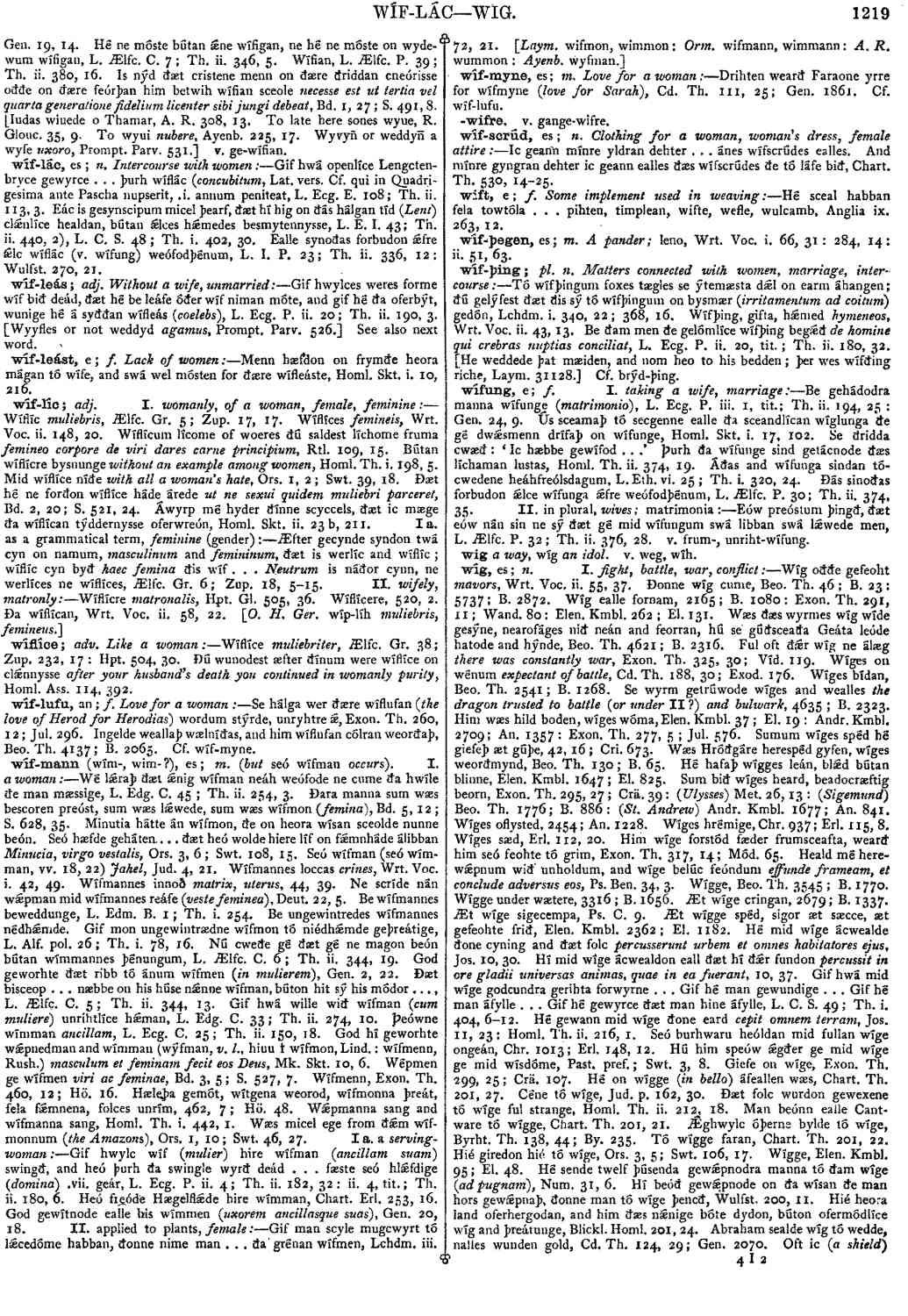wíg
- noun [ neuter ]
-
Wíg oððe gefeoht
mavors,
- Wrt. Voc. ii. 55, 37.
-
Ðonne wíg cume,
- Beo. Th. 46 ; B. 23: 5737; B. 2872.
-
Wíg ealle fornam,
- 2165; B. 1080: Exon. Th. 291, 11; Wand. 80: Elen. Kmbl. 262 ; El. 131.
-
Wæs ðæs wyrmes wíg wíde gesýne, nearofáges nið neán and feorran, hú se gúðsceaða Geáta leóde hatode and hýnde,
- Beo. Th. 4621; B. 2316.
-
Ful oft ðǽr wíg ne álæg
there was constantly war,
- Exon. Th. 325, 30; Víd. 119.
-
Wíges on wénum
expectant of battle,
- Cd. Th. 188, 30; Exod. 176.
-
Wíges bídan,
- Beo. Th. 2541; B. 1268.
- Se wyrm getrúwode wíges and wealles the dragon trusted to battle (or under
- 2454; An. 1228.
- Wæs his módsefa manegum gecýðed, wíg and wísdóm. Beo. Th. 705; B. 350.
-
Nǽfre on óre læg wídcúþes wíg, ðonne walu feóllon,
- 2088; B. 1082: Exon. Th. 338, 27; Gn. Ex. 85.
-
On Móyses hand wearð wíg gifen, wigena mænieo,
- Cd. Th. 216, 11; Dan. 5.
-
Hé mid ðam óðrum flocce tó ðære birig férde beótlíce mid wíge
ascendit cum senioribus in fronte exercitus, vallatus auxilio pugnatorum,
- Jos. 8, 10.
-
Ðanon hé gewende mid wíge tó Lebna and oferwann ða burh
transivit cum omni Israel in Lebna et pugnabat contra eam,
- 10, 29.
-
Offór hiene (
Philip) óðere Sciþþie mid lytelre firde ... Philippus him dyde heora wíg unweorð (made light of their force ),
- Ors. 3, 7; Swt. 118, 2.
-
Ne hé him ðæs wyrmes wíg for wiht dyde, eafoð and ellen,
- Beo. Th. 4685; B. 2348.
Bosworth, Joseph. “wíg.” In An Anglo-Saxon Dictionary Online, edited by Thomas Northcote Toller, Christ Sean, and Ondřej Tichy. Prague: Faculty of Arts, Charles University, 2014. https://bosworthtoller.com/35625.
Checked: 0